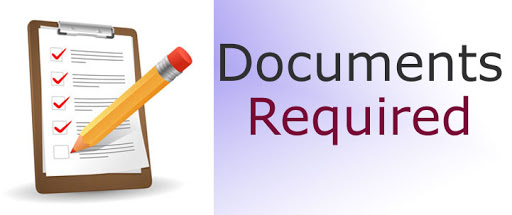- By TOP CHINA FREIGHT
- September 27, 2025
- Air Freight, Shipping
Table of Contents
Air freight from China to Kenya is one of the fastest and most efficient ways to move goods across continents. As trade between China and East Africa grows rapidly, businesses increasingly rely on air cargo for time-sensitive shipments. However, high costs, customs complexities, and capacity limitations can make the process challenging. This guide explores transit times, shipping costs, documentation, and strategies to streamline your air freight operations.

Why choose air freight from China to Kenya?
Air freight provides unmatched speed, with cargo reaching Nairobi or Mombasa in just a few days compared to several weeks by sea. For importers handling urgent deliveries, medical supplies, or electronics, this speed is critical. Moreover, Kenya’s Jomo Kenyatta International Airport (NBO) is one of Africa’s busiest hubs, connecting seamlessly to local and regional markets.
Although air freight costs more than sea freight, businesses benefit from reduced risks of damage, shorter lead times, and stronger supply chain reliability. Additionally, multiple airlines operate between major Chinese and Kenyan airports, ensuring frequent flights and flexible schedules.
How long does air freight from China to Kenya take?
Transit time depends on origin, carrier, and customs processing. Typically, shipments take 3–7 days, including clearance.
| Origin Airport (China) | Destination (Kenya) | Transit Time | Notes |
|---|---|---|---|
| Guangzhou (CAN) | Nairobi (NBO) | 3–5 days | Popular route for electronics |
| Shanghai (PVG) | Nairobi (NBO) | 4–6 days | High-volume shipments |
| Beijing (PEK) | Nairobi (NBO) | 4–7 days | Competitive rates |
| Shenzhen (SZX) | Nairobi (NBO) | 3–6 days | Ideal for tech cargo |
These times are much shorter than sea freight, which can take 30–40 days.
What are the costs of air freight from China to Kenya?

Air freight costs are calculated using either gross weight or volumetric weight, whichever is greater. Rates vary with demand, fuel prices, and airline capacity.
| Weight/Volume Bracket | Average Cost (USD/kg) | Notes |
|---|---|---|
| 45–100 kg | $6.00 – $7.50 | Small shipments |
| 100–300 kg | $5.00 – $6.50 | Cost-effective mid-size |
| 300–500 kg | $4.50 – $6.00 | Larger shipments |
| 500 kg+ | $4.00 – $5.00 | Best for bulk cargo |
Planning shipments outside of peak seasons like Chinese New Year can help secure better rates.
Which documents are required for air freight to Kenya?

Clear documentation is crucial to avoid delays at Kenyan customs.
| Document | Purpose |
|---|---|
| Air Waybill (AWB) | Contract between carrier and shipper |
| Commercial Invoice | Lists product values for duties |
| Packing List | Itemizes shipment contents |
| Import Declaration Form (IDF) | Required for clearance in Kenya |
| Certificate of Origin | Verifies product origin |
| Permits/Licenses | Needed for restricted items |
Errors or missing paperwork can result in penalties, making experienced freight forwarders invaluable.
Which goods are best suited for air freight from China to Kenya?
Air freight is best for shipments where speed outweighs cost. Examples include:
- Mobile phones, laptops, and high-tech devices
- Pharmaceuticals and medical supplies
- Fashion apparel with seasonal demand
- Perishable foods and flowers
- Spare parts required urgently
Bulky, low-value items like furniture or building materials are better suited for sea freight.
What are the pros and cons of air vs sea freight to Kenya?
| Criteria | Air Freight | Sea Freight |
|---|---|---|
| Transit Time | 3–7 days | 30–40 days |
| Cost | Higher | Lower |
| Reliability | High | Moderate |
| Cargo Size | Limited | Large volumes |
| Best for | High-value, urgent cargo | Bulk and low-cost goods |
Many businesses use a hybrid approach—air for urgent products and sea for bulk restocks.
How can you reduce air freight costs to Kenya?
Reduce volumetric weight by using compact, durable packaging.
Avoid peak seasons when airlines charge premium rates.
Real-time monitoring of cargo status
Long-term agreements with carriers can secure stable pricing.
Professionals negotiate better deals and optimize loads.
Case study: Shipping pharmaceuticals from Shanghai to Nairobi

A Kenyan distributor needed urgent delivery of 250 kg of pharmaceuticals from Shanghai. The forwarder arranged a direct flight to Nairobi, with a total transit time of 5 days, including customs clearance. Freight charges averaged $5.20 per kg, totaling $1,300. Despite the higher cost, the shipment arrived in time to meet critical medical demand, highlighting the value of air freight for sensitive products.
Should you use a freight forwarder for air cargo to Kenya?
Yes. Freight forwarders manage every step of the process, from booking cargo space to clearing customs. They also provide value-added services like cargo insurance, tracking, and warehousing. For businesses unfamiliar with Kenya’s import requirements, forwarders are essential to avoid delays and penalties.
What factors affect air freight transit times to Kenya?
Several variables influence delivery schedules:
Airport of origin:
Direct flights from Guangzhou or Shenzhen are faster.
Airline frequency:
Carriers with multiple weekly flights reduce wait times.
Customs processing:
Proper documents shorten clearance delays.
Seasonal demand:
Holiday seasons may cause congestion.
Therefore, businesses should always allow buffer days in their delivery planning.
Conclusion
Air freight from China to Kenya provides unmatched speed and reliability for businesses that need fast market access. Although it is more expensive than sea freight, it is the best choice for electronics, pharmaceuticals, perishables, and high-value goods. By preparing accurate documentation, optimizing packaging, and working with a reliable freight forwarder, companies can reduce risks and improve efficiency. For importers in Kenya, understanding costs, customs, and transit times is key to staying competitive in today’s fast-paced supply chain.
Need a Shipping Quote?
If you want expert guidance and peace of mind, our team is ready to assist.
TJ China Freight offers tailored solutions to help businesses of all sizes ship more reliably from China.

FAQ
Q1:Can individuals ship small parcels by air from China to Kenya?
Yes, small parcels under 50 kg can be shipped through courier services, while larger shipments are better handled by freight forwarders.
Q2:Do I need an Import Declaration Form (IDF) for imports to Kenya?
Yes, all commercial imports require an IDF, issued before the goods depart from China.
Q3:How are air freight rates calculated for shipments to Kenya?
Rates are based on actual or volumetric weight, whichever is greater, along with fuel surcharges.
Q4:Which airlines fly cargo between China and Kenya?
Carriers like Ethiopian Airlines, Qatar Airways, Emirates, and Turkish Airlines serve the route with frequent connections.
Q5:What duties and taxes apply to imports in Kenya?
Duties range from 0% to 25% depending on the product, plus a 16% VAT and other levies.
